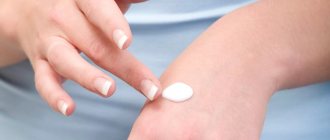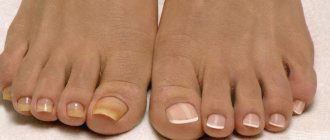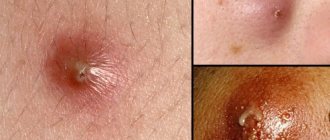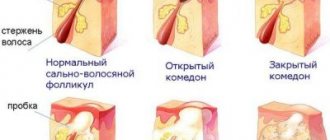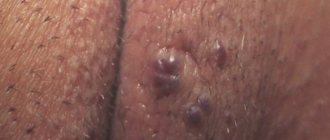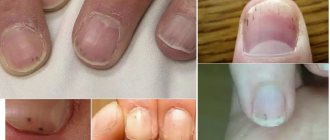June 29, 2020
Psoriasis with its entire appearance speaks of its “contagiousness”. Pink raised plaques all over the body, flaky skin, unsightly cloudy nails with grooves involuntarily instill fear of infection in others. Sometimes ordinary people confuse the disease with eczema or lichen, and ignorance in any case raises many questions and fears.
Causes of genital psoriasis and risk factors
Scientists from around the world continue to put forward hypotheses regarding the causes of psoriasis, including genital psoriasis. It should be noted that none of the assumptions made has yet been 100% confirmed. However, based on a combination of factors, experts conclude that the main role in the development of this pathology is played by an autoimmune disorder, when one’s own immune cells fight not against foreign agents, but against their own cells.
IMPORTANT! Genital psoriasis is not an infectious or viral disease. This is a dermatological problem caused by autoimmune processes. Therefore, it is impossible to become infected through sexual contact, blood transfusions, or at home.
Possible provoking factors causing genital psoriasis include:
- changes at the hormonal level (the likelihood of exacerbations increases during puberty, pre- and postmenopause, as a result of taking hormonal drugs);
- state of stress, increased nervous or physical stress;
- damage to the mucous membranes or skin in the intimate area;
- decreased immunity due to exacerbation of existing chronic diseases;
- hypothermia or prolonged exposure to damp underwear;
- allergic reactions to food, intoxication due to alcohol or medications;
- change of place of residence, moving to another climate zone;
- overweight.
Reasons for development
Despite the fact that the disease has existed for quite a long time, medicine does not know the exact factors of origin. It has been proven that the emotional factor directly affects the development of psoriasis. As a result of severe shocks, nervous breakdowns, depression, stress, cells that protect the immune system mistakenly “attack” healthy ones, forming lesions in various places.
Secondary causes that can trigger psoriasis include:
- low level of immunity;
- hormonal imbalances;
- genetic factors;
- excess weight;
- excessive sweating;
- allergy;
- history of serious illnesses.
Doctors note that the likelihood of the disease occurring in people varies under the same conditions. It occurs much more often in the male population than in women and in children during adolescence. There are also seasonal characteristics of the disease - more cases occur in the winter. Among the factors that provoke the development of inguinal psoriasis are:
- wrong lifestyle;
- bad habits;
- presence of diabetes mellitus;
- long-term medication use.
Diagnosis of genital psoriasis or psoriasis on the genitals
Psoriasis on the labia in women and on the head of the penis in men is not a separate disease. This is just one of the areas where the rash may be located. The problem can be localized in other parts of the body, most often the knees, elbows, abdomen, chest, back, buttocks, scalp, and in this case diagnosis is not difficult. Only genital rashes are rare, but cause more concern due to complex diagnostics, and often such patients are prescribed many tests to exclude infectious and allergic diseases.
Psoriasis of any localization, including genital psoriasis, is characterized by the psoriatic triad:
- The “stearin stain” phenomenon.
- The phenomenon of “terminal film”.
- The phenomenon of "bloody dew".
Fig.1
If the psoriatic triad is doubtful, the doctor may suggest a histological examination.
Characteristic signs of psoriasis on the genitals
A patient with psoriasis on the genitals complains of suspicious rashes.
Regardless of the location, most psoriatic rashes appear as a cluster of rich pink or red papules, the top of which is covered with white scales.
Genital psoriasis in women is predominantly associated with hormonal changes in the body that occur during puberty, pregnancy and the onset of menopause. A rash with psoriasis in women appears on the skin of the labia majora, in the pubic area, and inguinal folds. Sometimes psoriasis affects the mucous membranes of the labia minora. The disease can be recognized by the characteristic features of the rash: papules usually have a clear oval or circle shape, their boundaries are clearly visible, covered with scales on top, itching is almost always absent. Even though there are lesions in other parts of the body, women usually do not perceive this disease as psoriasis. Representatives of the fairer sex more often identify rashes as a manifestation of gynecological infections.
In men, genital psoriasis primarily affects the penis and head of the penis; the rash can also be located in the folds and pubic area. Usually the rashes are pink or red papules, slightly protruding above the surface of the skin, having smooth borders and covered with scales on top. Peeling and itching are usually absent. In advanced situations, the rash spreads to the inner surface of the skin covering the penis. Such phenomena cause particular discomfort among representatives of the stronger sex.
When a man or woman is diagnosed with genital psoriasis, treatment should not be delayed. Since this area is subject to mechanical friction, the skin in the groin area can become even more traumatized, its surface will begin to crack, which leads to the spread of rashes and damage to an increasingly larger area.
IMPORTANT! Psoriasis on the genitals threatens the normal sexual life of men and women. This, in turn, can trigger neuropsychiatric disorders, which will require more serious correction, so treatment should be started in a timely manner.
Symptoms
Psoriasis in the groin is characterized by certain symptoms that prevent it from being confused with any other disease. The development of pathology begins with the appearance of red rashes in the inguinal folds, on the pubis, as well as in the perineum or on the penis. Papules, as a rule, have clear boundaries and a well-defined shape in the form of oval or round spots. The redness that merges together slightly rises above the level of healthy skin, and their surface is covered with grayish scales. When they are removed, a weeping surface with blood spots is exposed - the so-called symptom of bloody dew. Sometimes the plaques are located singly, and there are no crusts on them, which is due to the localization of the lesions and the high humidity in these places. An accompanying sign of such external manifestations is the presence of severe itching, which intensifies when rubbing underwear or scratching.
This picture is very similar to a number of other diseases of the epidermis, so for a correct and accurate diagnosis you need to contact a dermatologist.
Treatment of genital psoriasis in men and women
Treatment regimens for genital psoriasis differ from generally accepted methods for eliminating rashes on other parts of the body. The difference is that the genitals have special sensitive areas with mucous membranes; the effect in this area must be especially delicate and careful.
As a rule, for genital psoriasis, complex treatment is prescribed. The optimal therapy should be selected by the doctor, based on medical history, the general condition of the patient, and his individual characteristics. The principles of treatment depend on the degree of the disease and the severity of symptoms.
Typically, a regimen of external therapy for genital psoriasis or psoriasis on the genital organs involves prescribing the following groups of drugs:
- hormonal drugs - such drugs help relieve inflammation and reduce rashes, but they are not recommended for long-term use;
- non-hormonal agents based on activated zinc pyrithione;
- softening and caring components - they help moisturize the skin in the delicate area, eliminate signs of peeling, and restore the natural lipid barrier.
External hormonal preparations should be used with caution, because the surface of the genitals is highly absorbable.
Anatomical differences in absorption (% of the total absorbed dose from the entire
body surface area) are:
- Plantar surface of the foot - 0.14%;
- Palmar surface - 0.83%;
- Forearm - 1.0%;
- Scalp - 3.5%;
- Forehead - 6.0%;
- Lower jaw area - 13%;
- The surface of the genitals is 42%.
The use of external hormones inhibits local immunity, which enhances the growth of fungal flora. After a course of therapy, it is important to gradually reduce the use of hormonal drugs to avoid withdrawal syndrome.
Preparations with the irritating effect of tar and petroleum derivatives are not recommended for use in psoriasis on sensitive areas and genitals, as they have side effects such as severe skin irritation (including burns), persistent discoloration of the skin, increased sensitivity of the skin to the sun (phototoxicity) , frequent cases of allergies. Also, these groups of drugs are characterized by low compliance due to an unpleasant odor.
Many specialists prefer to treat genital psoriasis with non-hormonal Skin-cap cream. Skin-cap cream contains activated zinc pyrithione, which has a pronounced anti-inflammatory property and antipruritic effect. Additionally, the formula of the drugs includes moisturizing components. Skin-cap cream can also be used to prevent progression, for example, to avoid the appearance of psoriasis rashes on the pubis after depilation or shaving.
Additional Relapse Prevention Recommendations
Psoriasis on the genitals cannot be completely cured, but you can take control of this disease and reduce the likelihood of exacerbations. To do this, it is necessary not only to undergo timely medical examinations and follow doctors’ recommendations, but also to reconsider your lifestyle. Here are some recommendations to reduce the likelihood of relapses of genital psoriasis:
- review the diet, exclude foods that cause aggravation;
- provide high-quality and regular skin care in the intimate area;
- exclude traumatic procedures (epilation, shaving, aggressive peelings in the bikini area);
- give preference to linen made from natural soft fabrics (cotton is ideal);
- try to avoid stress, balance activity and rest.
With an integrated approach to prevention and treatment, genital psoriasis can be kept under control, thereby increasing the quality of life of patients.
Fig.1. Psoriatic triad
Rice. 2. Psoriasis on the penis
Psoriasis
Treatment methods
Modern medicine has a wide range of possibilities to combat such an insidious disease. It includes local (local), drug, hardware and complex therapy. In addition, the patient himself must follow a diet that limits the consumption of foods and drinks that provoke a relapse of the disease. It is also necessary to adjust your behavior: avoid sunburn, use protective equipment when using chemical solutions, warn about the presence of psoriasis when prescribing medications by a doctor, avoid stress and be attentive to your health. At the first sign of exacerbation, immediately visit a doctor!
Diagnosis of psoriasis begins with the use of the scraping method, in which the dermatologist receives a “psoriatic triad” - material that allows, after a visual examination of the epidermis, to establish the correct diagnosis of the patient. In rare cases, a skin biopsy is used to clarify it.
Treatment of psoriasis is selected strictly individually, depending on the age, severity of the disease, personality characteristics, gender, general health, profession and other qualities of the patient.
In the initial stage, local therapy often prevails with the application of special ointments, creams, and lotions to the foci of the disease. Hormonal glucocorticosteroid ointments are also often prescribed, which effectively relieve the inflammatory process and also reduce itching and flaking of plaques. However, long-term use of such medications is prohibited due to the skin getting used to it and the formation of its atrophy, especially in the fold areas. A solution of salicylic acid, which relieves inflammation and inhibits the formation of new cells, is widely used in the treatment of psoriasis. Ointments containing zinc oxide, tar and boric acid have the same properties.
Phototherapy is the next stage of psoriasis treatment. It provides an anti-inflammatory effect due to ultraviolet rays and normalizes immune processes in the dermis. Redness of the skin in the area of application and increased dryness are side effects of phototherapy, so you should consult your doctor about applying a protective cream with a high SPF to healthy adjacent areas of the skin.
If local treatment is unsuccessful, systemic drug therapy using tablets, capsules and injections is prescribed. At the same time, treatment is carried out to neutralize the toxic effects of these drugs on internal organs. A dermatologist monitors the patient’s health condition and strictly monitors the patient’s blood test.
Climatic and balneological procedures perfectly prevent the occurrence of relapse of psoriasis.
Preventive measures to increase periods of remission of psoriasis are aimed at maintaining normal skin moisture and proper skin care. Visits to extremely dry rooms and countries with very dry climates should be avoided. It is necessary to follow a diet, avoiding foods and drinks that provoke an exacerbation of the disease in the diet. You also need to monitor your health, follow the rules of a healthy lifestyle, and give up bad habits. We must not forget about maintaining the integrity of the skin, and treat any skin damage in a timely manner to prevent the occurrence of psoriatic plaques. It is advisable to practice psychological relaxation therapy, relieve nervous tension, and engage in meditation.
In order to improve the quality of life in the presence of such a serious chronic disease as psoriasis, it is necessary to consult a competent doctor in time and undergo an examination. Only regular treatment of psoriasis can help keep this insidious disease under control.

